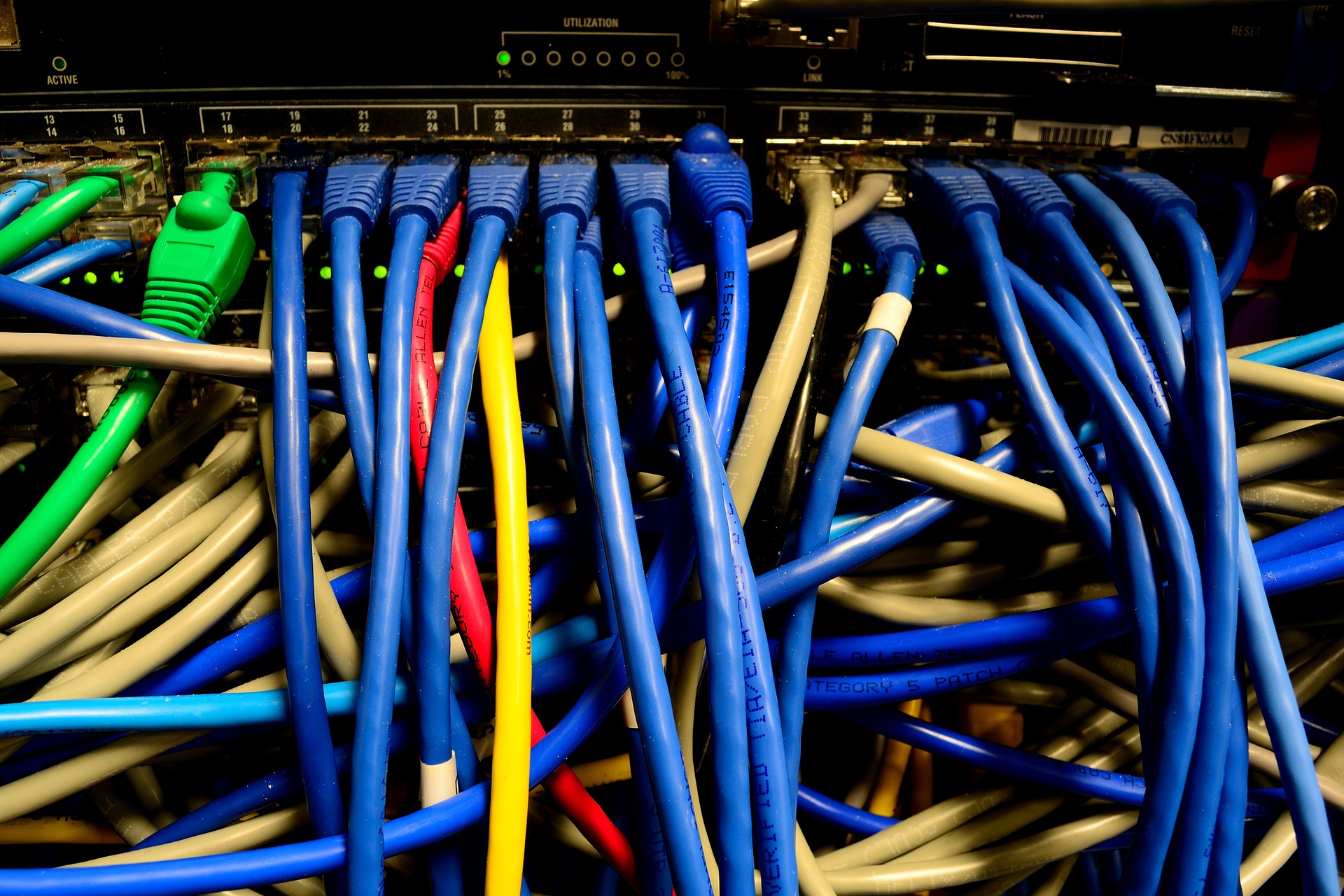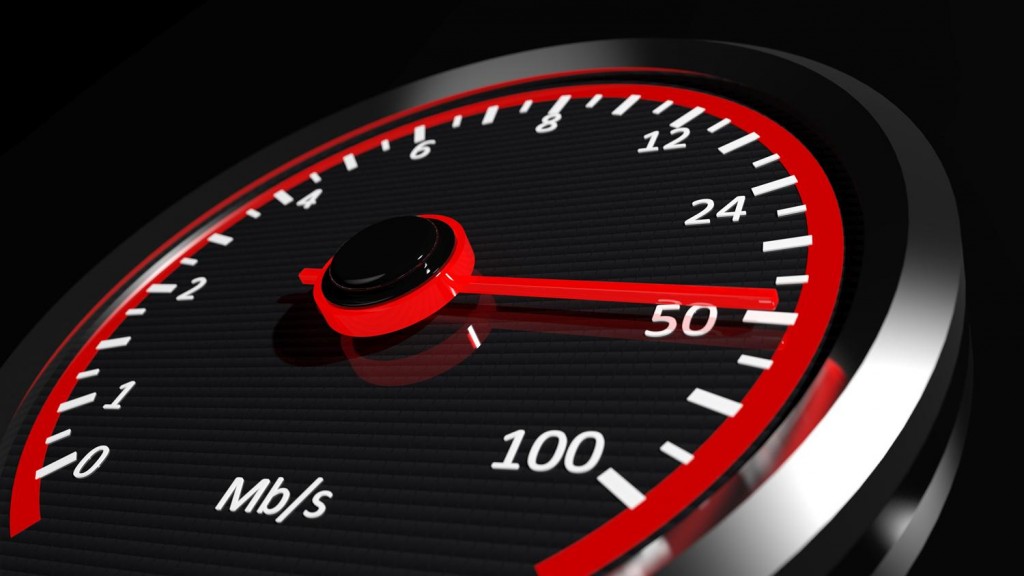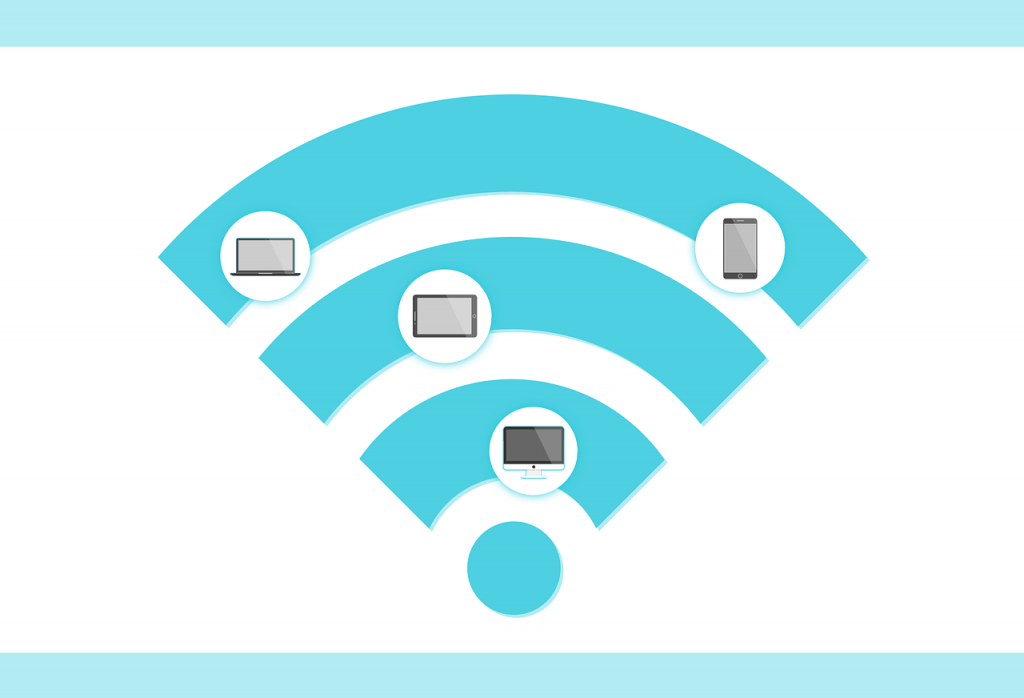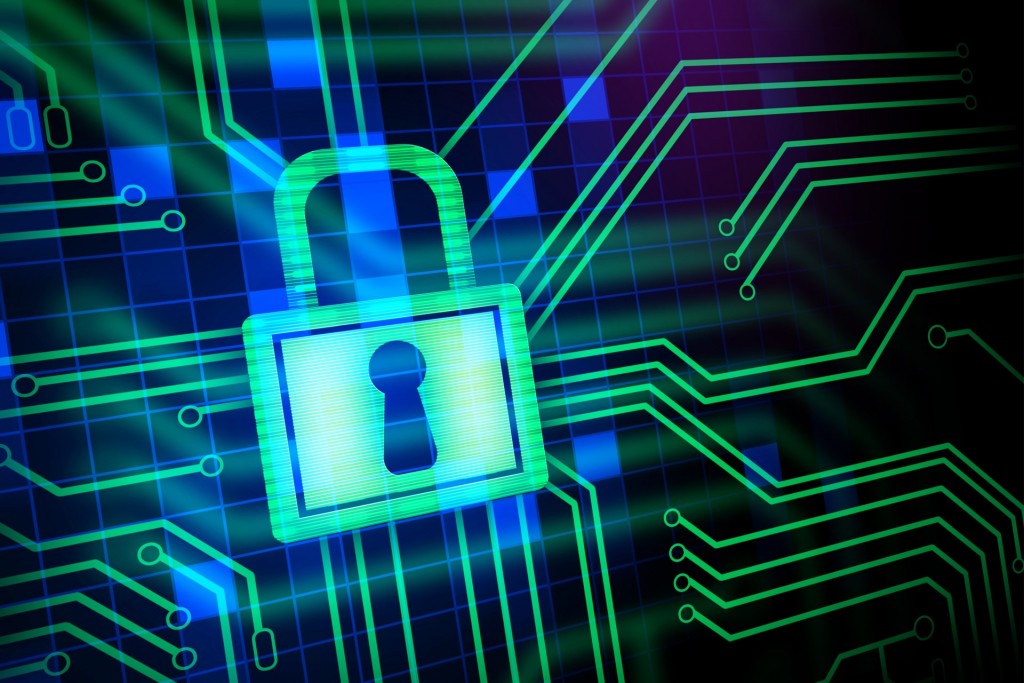Why Is Ethernet Better Than WiFi?
Before diving in, you should remember that WiFi and wired Ethernet connections are both valid solutions. WiFi keeps improving, and it’s just about the only reasonable solution for mobile devices and laptops.
Ethernet is better, but it’s up to you to determine whether or not the improvement is worthwhile given the extra set-up and limitations of using physical wires.
Speed
It’s an indisputable reality in the networking world that wired connections are significantly faster than wireless ones. This is true for more than just Ethernet. Pro gamers don’t usually use wireless mice and keyboards. There’s a reason for that.
It’s fairly easy to see the difference when you look at both the theoretical and practical speeds offered by both wired and wireless connections.
The theoretical maximum bandwidth of an average Ethernet port is 1Gb/s. For businesses and higher volume networks, 10Gb/s equipment is available too.
Wireless AC is currently the top WiFi standard, and the top theoretical speed of a wireless AC band is 1300Mb/s. That’s actually over the speed of the average Ethernet port; however, your router shares that speed among all devices connected on that band.
There are loads of routers out there advertising more bandwidth that 1300Mb/s, but those are multi-band routers. Each band still has a maximum of 1300Mb/s.
Read more: How to increase your Internet speeds
The real difference comes when you look at practical speeds. In a wired network, you’re more likely to hit a bottleneck someplace other than your network. That bottleneck could be your hard drive’s read/write speeds or your Internet connection. If you have some excellent SSDs, you might actually get close to a full 1Gb/s transfer rate over the network. Keep in mind that that’s gigabits, not gigabytes. If you’re talking bytes, its around 128MB/s.
In a wireless network, you’re never going to come near the theoretical speeds. In truth, most WiFi speeds are only ever around half of what’s advertised, and that’s under perfect conditions with only one connected device. Wireless AC’s ideal maximum is typically around 400-500Mb/s. Throw in additional devices, walls, interference, and all of the other factors that can get in the way of WiFi speeds, and you’re lucky if you’re around 200Mb/s.
Reliability
Anyone who as ever used WiFi knows that it’s not always reliable. Even the best wireless networks can have their quirks, and some on the lower end can be downright volatile.
Wired networks don’t share these problems. Using a physical wire means that data has one clear path to flow back and forth, and there’s not a whole lot that can get in the way.
Latency
Latency is a delay in transmission. It affects all forms of networking, but WiFi feels it much more. The signals through Ethernet cables travel faster than radio waves, and they’re more direct. There’s also processing time required for decryption of the signal. Walls, floors, and other physical barriers also get in the way of signal transmission and impact performance.
Interference
Interference is a big problem for wireless networks. It’s actually the reason why a new frequency, 5GHz, has been added to WiFi.
Tons of devices use radio waves to communicate. The 2.4GHz frequency, which WiFi uses, has become extremely cluttered by wireless phones, remote controls, and even other WiFi devices. With all of that traffic, the signals muddy each other up and provide a ton of extra noise that receivers need to sort through. When you’re talking about a remote controlled toy car, that doesn’t matter. When it’s your Internet connection, it does.
Even the 5GHz frequency isn’t perfect. More WiFi devices are beginning to use 5GHz, and they will interfere with each other, too.
Minor interference can get in the way of wired networks, but for the most part, the cables themselves block out any rogue electromagnetic signals that may get in the way.
Dropped Connections
Who hasn’t had their WiFi cut out for no reason? Recently this problem has gotten better, but wireless networks still drop connections for short spans of time.
Most of the time, these “micro drops” aren’t that bad. If you’re just browsing the Internet, you probably won’t notice. However, if you’re streaming HD video or playing a game, you will. Video can stutter, or stop entirely to buffer. Games can miss key presses and cause lag. No one likes lag.
Wired networks don’t suffer from dropped connections because the connection is an actual cable running between the computer and a router. Unless someone cuts it or pulls it out, it’s connected.
Security
There’s no need to worry about security on a wired network. The only way to connect is to plug in an Ethernet cable. With WiFi, there’s an additional set of concerns.
WiFi connections need to be properly configured and encrypted. You need to manage access, handle passwords, and make sure that no one gets on the network that isn’t supposed to be there.
If a WiFi network isn’t secured, everyone on it is open to all sorts of nasty attacks, and the network itself could become a tool for an attacker.
Should You Ever Use WiFi?
WiFi certainly isn’t terrible. In fact, it has brought a lot of accessibility to the world; however it still has quite a few flaws to it. One thing’s for certain: WiFi isn’t going anywhere, and it will continue to improve. But, in the meantime, it’s just better to use wires where you can.




















